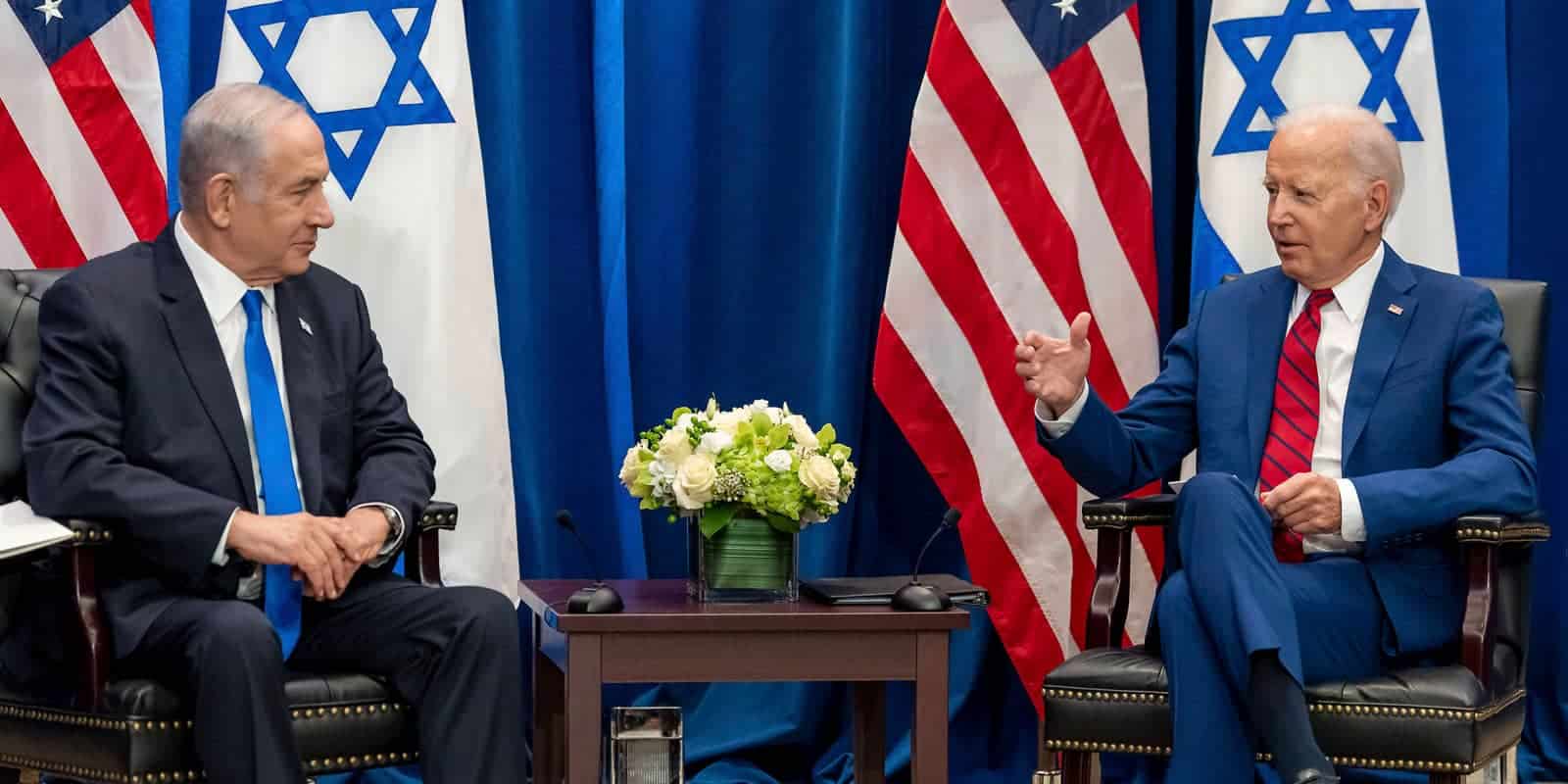While a formal defense treaty between Israel and the US has several advantages, it will always be subordinate to America’s strategic interests, reducing Israel’s freedom of action. The principle established from Israel’s inception that “Israel will defend itself by itself” must be retained.
The essence of any defense treaty is a mutual commitment to act militarily against third-party aggression. The best-known defense treaty today is NATO, though there are more limited defense alliances, such as the US partnerships with Japan and South Korea. In those cases, the US pledged to protect its allies in the event of an attack, though the reciprocity is less than in the NATO alliance.
The development of new threats after the Cold War era, such as dangers in space or cyberspace, sometimes required an adjustment in the alliances.
The Americans first proposed a defense alliance between Israel and the US after the Six-Day War. The idea was to provide Israel with the maneuverability to offer territorial concessions that involved security risks in exchange for a promise of American protection in the event of an attack on Israel.
The issue came up again in the mid-1990s in talks with prime minister Shimon Peres, but the results of the 1996 election removed it from the agenda. Later, as the peace talks with Syria progressed, the Clinton administration raised again the idea of a defense alliance under the assumption that such cooperation would make it easier for Israel to withdraw from the Golan Heights.
Prime Minister Benjamin Netanyahu mentioned the idea in an election campaign four years ago. However, it failed to materialize due to the opposition of the security establishment and the domestic political instability (repeated elections over a short time).
These days, we are witnessing progress in the normalization process with Saudi Arabia conditioned on a defense alliance with the US, and thus, the idea of an Israeli defense pact with the US comes up again.
A limited defense alliance between Israel and the US has several advantages. It will strengthen the political and strategic position of the State of Israel in the world in general and the region. It will improve its ability to act against countries and international organizations. A defense treaty will also probably lead to the expansion of bipartisan support for Israel, which has recently been eroded, and provide stability for American support for Israel for years to come.
Some think such a defense alliance can also help Israel in the campaign against Iran and its proxies and perhaps make it more difficult for Tehran to realize its efforts for regional hegemony. It could also allay the fears of Israel’s citizens. Nevertheless, the benefits will always hinge on the American definition of its strategic interests. The asymmetry between the two states will always dictate that American preferences prevail – and those challenges could be severe, considering how often Israel has faced critical and/or adversarial administrations.
The reasons against establishing a defense alliance with the US are still valid. A defense alliance could reduce Israel’s freedom to act against the various contingencies in the region. Indeed, the State of Israel always considered the “American factor” in its decision-making. However, within the constraints of an alliance, Jerusalem will feel obliged to be more sensitive to Washington’s considerations, including minimizing possible damage to American interests in the region.
For example, the 2007 attack on the Syrian nuclear reactor would have required prior coordination and greater consideration of the American interest. Those considerations could have caused a cancellation or postponement of the attack, a fundamental narrowing of Israel’s freedom of action.
Today, as in the past, the defense alliance is foremost an American concern whose goal is to subordinate Israel’s interests to American interests and to restrain its military activities.
One should acknowledge the limited value of an American-Israeli defense treaty. For example, in 1994, the US signed the Budapest Memorandum, in which it committed (along with other countries, including Russia) to maintain Ukrainian sovereignty. However, when the test of the American commitment arrived, the US decided not to protect Ukraine’s territorial integrity. It offered only advice and military aid. Although this memorandum was not a defense alliance, it raised questions about the reliability of the American commitment. That is how Taiwan’s defense alliance with the US was unilaterally canceled by the US when the latter wanted to enhance relations with China. It should also be remembered that partnerships did not prevent heavy American pressures on defense partners Japan and South Korea.
The characteristics of the regional environment require caution and the need not to indulge in false hopes. The radical axis led by Iran has expanded to include Hezbollah, the Palestinian Islamic Jihad, Hamas, and the Houthis in Yemen. Iran plans a multi-front campaign against Israel (Lebanon, Syria, Iraq, Yemen, and the Palestinian arena) and, possibly, a sixth front if some of Israel’s Arab citizens join the fray. Iran would like to activate all those fronts at the ripe moment, or separately, to engage Israel in a constant war of attrition, which, according to Iran’s approach, will lead to the disintegration of Israel’s national strength and social cohesion.
Israel must preserve its freedom of action against these threats without Washington’s interference. Otherwise, restrictions that could be placed on Israel due to the need for coordination required by the defense alliance will reduce Israel’s scope of flexibility, erode Israel’s ability to deter the enemy, and damage its image of strength. The result will be economic damage and the deterioration of social resilience.
The price may be too high.
Any defense alliance impacts a country’s independence to make a decision, but Israel must insist on preserving its strategic flexibility and maneuverability. Israel’s principle since creation that “Israel will defend itself by itself” must be retained. It would be a grave mistake for Israel to give up this principle.
JISS Policy Papers are published through the generosity of the Greg Rosshandler Family.
Photo: IMAGO / ZUMA Wire / Adam Schultz / White House










 - בניית אתרים
- בניית אתרים